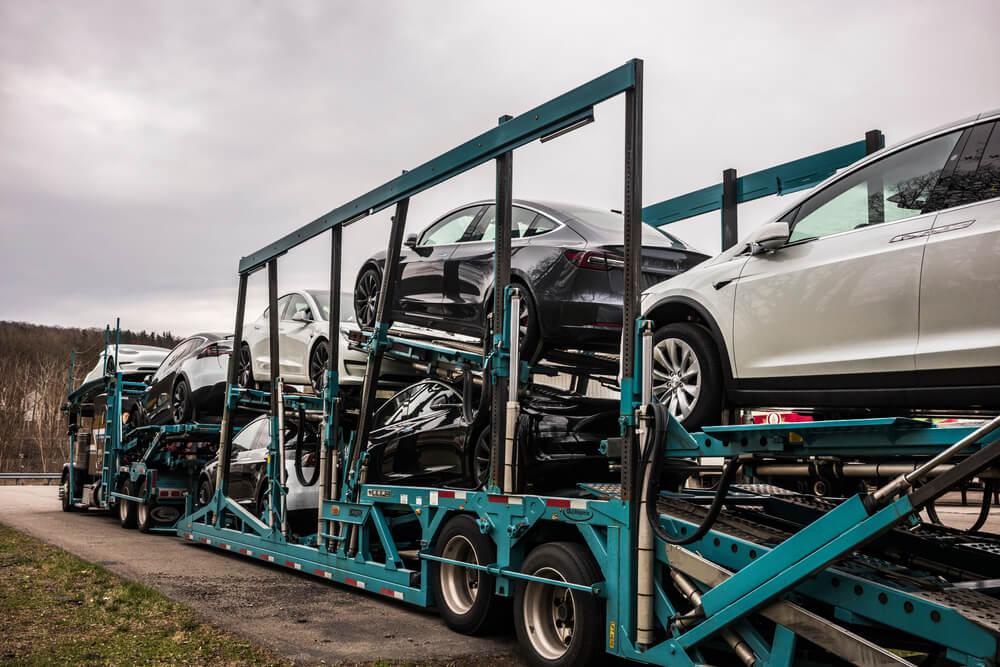
Auto shipping can range from moderately priced to expensive, typically varying between $500 to $1,700. This cost is influenced by many factors, including the distance of transport, the time of year, the type of carrier used, the size of the vehicle, and the pickup and delivery locations.
The expense of auto shipping is contingent on various factors, making it a service with a broad price range of $500 to $1,700. Factors like transport distance, seasonal demand, the type of transport carrier, vehicle size, and specific location significantly impact the overall cost. Understanding these elements is critical to gauging whether auto shipping fits your budget and finding the most cost-effective shipping solution.
Factors Influencing the Cost of Auto Shipping
Auto shipping costs vary due to several factors. Transport distance comes first. Companies charge by mileage between pick-up and drop-off. The longer the trip, the higher the fuel, wear, and driver costs, which raises consumer prices.

Another critical factor is vehicle size and weight. Heavy vehicles take up more trailer space and weigh more. This can significantly affect costs because carriers may need to load fewer vehicles or use more fuel due to the extra weight. Luxury and vintage cars may require special handling or protection, which increases the cost.
The Impact of Distance on Auto Shipping Costs
Distance is a major factor in auto shipping costs. More transport miles mean higher prices. This is due to fuel costs and truck wear. A more extended trip may require the driver to work overtime, increasing labor costs.
Shorter shipments are sometimes cheaper. Many companies have a minimum shipping fee regardless of distance. Moving a car a few hundred miles may cost more per mile than shipping it cross-country. Long-distance shipments spread the fuel, labor, and other costs over more miles, lowering the cost per mile.
How Vehicle Size and Weight Affect Shipping Price
Size and weight are among the pivotal factors that contribute directly to the cost of auto shipping. Larger vehicles require more accommodations in terms of space on the transport carrier; hence, holding fewer cars implies a higher price to ship. Additionally, heavier vehicles place extra stress on the transport trailer, leading to increased fuel consumption, which trickles down to you, the owner, as part of the shipping cost.
Moreover, the total weight and the distribution of importance in the vehicle affect the cost. For a balanced allocation, carriers prefer the weight to be centrally located. Poor weight distribution sometimes forces the airline to ship fewer cars on the trailer to maintain a safety balance. Ultimately, these factors increase prices due to the inherent transportation and fuel costs associated with auto shipping.

Frequently Asked Questions
Auto shipping involves transporting vehicles from one location to another, typically via trucks, rail, or sea. The process includes picking up the vehicle from a designated place, securing it onto a transport carrier, and delivering it to the final destination.
Various factors can affect the cost of auto shipping. These include the size and weight of the vehicle, the distance to be covered, the type of transport carrier used, and the current market rates. Factors such as the vehicle's condition, the time of year, and the pickup and delivery locations can also affect the cost.
The cost of auto shipping increases with the distance to be covered. This is because longer distances involve more fuel consumption, labor, wear and tear on the transport vehicle, and a higher risk of damage or delays. Therefore, shipping your car across the country will typically cost more than sending it a few states over.
The size and weight of a vehicle directly impact the shipping price. Larger and heavier vehicles take up more space on the transport carrier and increase the importance of the shipment. This, in turn, leads to higher fuel consumption and potentially more wear and tear on the transport vehicle. Therefore, shipping a compact car would cost less than shipping a large SUV or a truck.
Yes, the type of vehicle can significantly affect the shipping cost. For example, luxury, vintage, or specialty vehicles may require special handling or enclosed transport, which can increase the price. Similarly, cars in poor condition may require additional equipment or precautions for safe transportation, leading to higher costs.






 Share on Facebook
Share on Facebook Share on LinkedIn
Share on LinkedIn Share on Twitter
Share on Twitter




 Google
Google  Instagram
Instagram  Trustpilot
Trustpilot 



